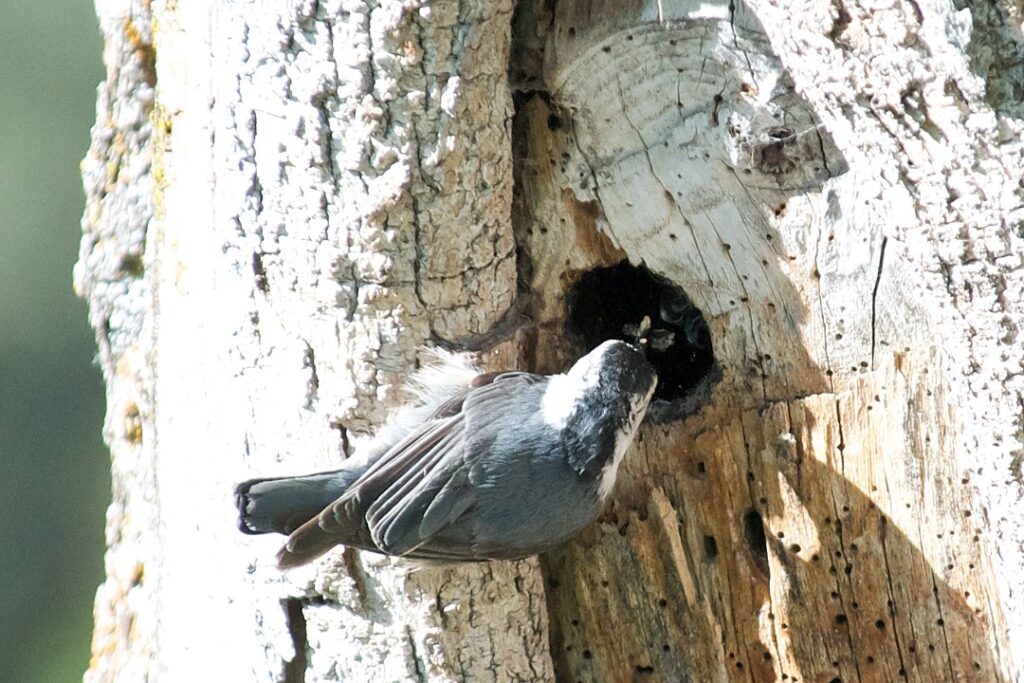By Caelan Angell
When I smell the Ponderosa Pine needles baking in the summer sun, I feel a deep warmth in my belly. I feel a sense of homeliness akin to sitting in front of a fire with a cup of coffee. Growing up, I found a home in the wild. The wild home that Merriam Websters defines as “not inhabited or cultivated.” Yet, that has not been my experience. Those wild lands are inhabited by White-breasted Nuthatch, whittling away at a home for her young, and Arrow-leaf Balsamroot, whose sun-drop flowers decorate the hillsides.
These lands have been cultivated by fire and water and wind. By the Spokane tribe and other Salish-speaking peoples of the area who tended these lands with incredible nuance for thousands of years through controlled burning, seed-spreading, and restorative hunting and harvesting practices. To say that these lands were uninhabited and uncultivated is a carefully crafted, yet often undetected, lie.
This colonial narrative has provided a moral justification for the exploitation of many human and other-than-human peoples. In defining a place as wilderness, like the “Great Frontier,” it implies that this is a land untouched by humans, or at least “civilized” ones. This relationship to wildness as something that must be subdued, that is “other than,” relies on the even deeper narrative of the human-nature divide: the belief that humans are separate from and superior to our earthly community.
But as I sit with Cedar, my back supported by their strong trunk, and we swap our breath, that story of separation becomes an impossibility. The two of us, cedar and me and all of the other beings of that place … is wildness. Just as that moment when you meet someone in a doorway or in a grocery store aisle, and you both try to pass each other on first one side, then the other, then the first direction again, before pausing to chuckle and finally pass each other, is also wildness. Just as the fire that consumes the limbs of Madrone and Maple, and warms my home as the nights get colder and the earth gets wetter, is wildness just the same.
To me, wildness is not about solitude. To be wild is to be in relation. We must re-member ourselves within this wild web of life. We are a part of this community and have a shared language. The next time you meet a Robin on a morning stroll, I invite you to recognize that both of your movements are a conversation. Their gentle bob and soft whistle is perhaps an inquiry into your intentions. As you encounter the Deer in your yard, pay attention to your body. Are you facing them head-on, body intent on them on as a predator might be? Or can you turn you your body sideways, letting them know you are no threat, merely passing by? Does their body relax as you make this shift in posture?
As I sit with the history of wild, I recognize the harm that is implicit in its history, and I am curious about how to move forward. What steps can I take to mitigate and stop perpetuating the harm? One recourse could be distancing from the terminology and language, finding alternatives for the entity that the language of wild describes. But this distancing feels wrong to me on a number of levels. Simply abandoning this language feels like erasure.
The weapon that is the ideals of wilderness and “Manifest Destiny” has long been wielded, and has done a lot of damage. That must not be forgotten. And yet, we are living in and interacting with a world that is shaped by the lived experience of this land, a world of relationality. Wild is us, and we are wild.
It will take time, but I believe we can recognize our role in our earthly community, and move to embody reciprocity. Perhaps this starts by asking ourselves how we are giving back to our local other-than-human community. Perhaps can begin by re-learning our most fundamental language, that of our body, and entering into conversation with our other-than-human neighbors.
Perhaps, by stepping back into relationship with wildness as relationality, we will no longer feel quite so alone in our lives.

